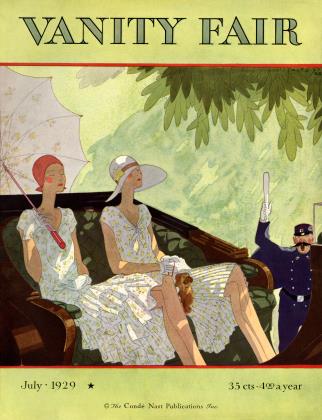Sign In to Your Account
Subscribers have complete access to the archive.
Sign In Not a Subscriber?Join NowAn Enlightening Essay Concerning a Phrase Which Everybody Knows and Nobody Understands
July 1929 D. H. Lawrence View Full Issue
View Full Issue






Subscribers have complete access to the archive.
Sign In Not a Subscriber?Join Now